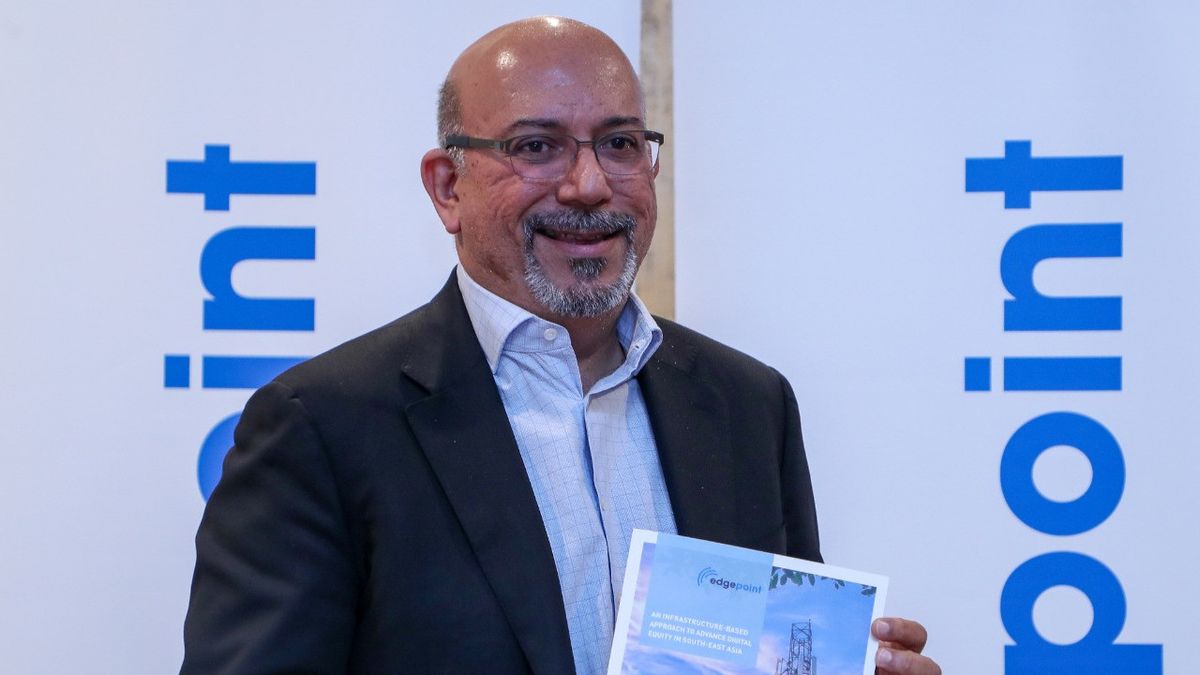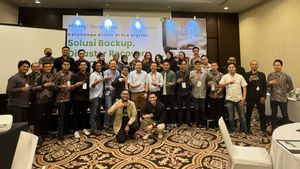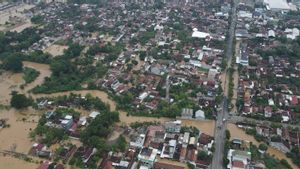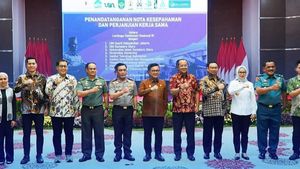JAKARTA - EdgePoint Infrastructure (EdgePoint), an independent telecommunications infrastructure company based in ASEAN, today released a Whitepaper highlighting the digital divide in Southeast Asia.
Titled "Infrastructure-Based Approach to Advance Digital Equity in Southeast Asia", the whitepaper identifies the challenges of connectivity from the point of view of infrastructure providers in three major countries, namely Malaysia, Indonesia, and the Philippines. This Whitepaper also encourages comprehensive policy changes to address the gap.
Present as speakers at the whitepaper launch event, Suresh Sidhu, Chief Executive Officer and Founder EdgePoint Infrastructure said EdgePoint launched these findings to encourage discussions around digital equality to be discussed more. A strong and jointly usable telecommunication infrastructure is the foundation for expanding connectivity to areas that have not been served and ensuring smooth connectivity in very dense areas.
"As part of the same community, we need to jointly encourage digital inclusion and expand connectivity so that it can be accessed by everyone in the ASEAN region, ensuring everyone benefits from the digital world, both technologically, economically, and socially. As a trusted partner for cellular network operators (MNO), telecommunications organizations, and regulators, EdgePoint hopes that this whitepaper can inspire industry stakeholders and policymakers to hold these important talks in order to achieve universal connectivity," said Suresh, quoted Wednesday, November 29.
Although connectivity has grown rapidly in recent years, there are still some parts in the region that have not benefited from connectivity access. In Malaysia, 76 percent of the population is mobile phone users, but only 66 percent have access to the mobile internet.
On the other hand, 56 percent of Indonesia's population owns mobile devices, but only 47 percent are connected to the internet. Likewise in the Philippines, 54 percent are mobile device users, with only 42 percent having access to the mobile internet. This shows that there is still a significant coverage gap and an urgent need to reach parts of these countries that do not have connectivity.
The findings of the whitepaper reveal a gap in the percentage of populations that do not have 4G range in some countries, including the Philippines (5%), Indonesia (5%), and Malaysia (3%). In addition, these countries have a very high population ratio per tower, well above the market standards of developed countries, indicating that there is also a possibility of an unserved population.
Some of the factors that contribute to poor connectivity are generally low 4G coverage outside of big cities, and the absence of comprehensive support infrastructure, such as backhaul. These things ultimately lead to a low level of mobile internet adoption, thus hampering GDP growth.
Through these findings, this whitepaper also outlines six main policy themes to bridge the digital gap in Malaysia, Indonesia and the Philippines.
1. Reform disbursement of funds for universal access initiatives to ensure funds are used more efficiently and can quickly benefit rural communities. Considering changing the disbursement model of funds from disbursement of capital expenditure (capex) into a monthly operational expenditure (opex) model, thus creating a sustainable and long-term approach in funding projects.
2. Melakukan pemajaran infrastruktur dan meningkatkan akses ke informasi untuk membantu penyedia layanan dalam membuat keputusan penyebaran strategis; sebagai contoh - daerah dengan kasus ekonomi rendah mungkin memerlukan pendanaan penuh dari pemerintah karena tidak menguntungkan bagi sektor swasta.
3. Increase funding for backhaul infrastructure with joint access in rural areas, as it is a major contributor to the coverage gap across the market. An analysis must be carried out case by case to determine the most optimal reconnection of the approach, but can include microwaves, satellites, and even domestic submarine cables.
4. Making targeted programs to increase coverage in important facilities in rural areas and underserved areas such as hospitals, transportation centers, schools and markets, all important public areas with higher number of visitors to benefit disadvantaged users with limited internet access/not in their homes.
5. Manduring access to indoor ICT facilities to enable strong in-building coverage through a law that allows telecommunications license holders to install the necessary equipment. With a better reach within the building, users can participate in various digital activities such as work, financial transactions, and health care.
6. Building quality standards for cellular coverage as a commitment for MNO to deploy infrastructure to meet their targets, thus encouraging infrastructure launches in areas that have not been served.
This Whitepaper further outlines three additional policy recommendations that address each other's challenges in each market, including facilitating access to road use rights in Malaysia to accelerate the process of building and deploying communication infrastructure, rationalizing spectral costs in Indonesia to increase investment in rural areas, and overcoming the lack of universal service funds in the Philippines that creates gaps for telecommunications companies and other players to invest in marginal areas.
Suresh continued, "Introducing a new approach is key to ensuring no country is left behind in this rapidly changing world. Adopting a new way of thinking and creating strong public-private partnerships will help accelerate change. At EdgePoint, we will continue to focus on building quality digital infrastructure in the region so that digital equity in Southeast Asia can be achieved and beneficial for society."
EdgePoint Infrastructure currently has 14,500 towers in Malaysia, Indonesia and the Philippines.
The English, Chinese, Japanese, Arabic, and French versions are automatically generated by the AI. So there may still be inaccuracies in translating, please always see Indonesian as our main language. (system supported by DigitalSiber.id)













